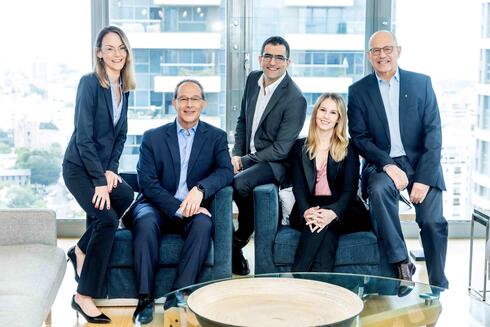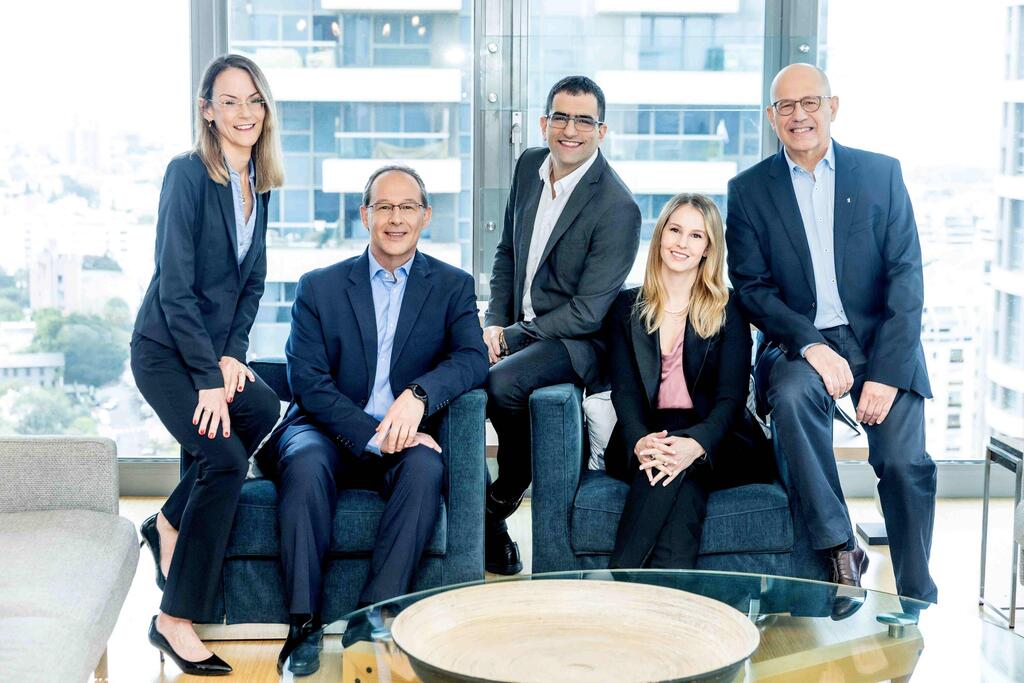
2025 VC Survey
Unlocking the IPO floodgates: Is 2025 the year public markets revive?
Mobilion Ventures Managing Partner Avi Feldman offers his predictions for the global IPO drought and its implications for Israeli tech companies.
“It seems that the global IPO drought may shift into becoming irrigated land in the coming year, as there are initial signs of improvement in the capital markets,” said Mobilion Ventures Managing Partner Avi Feldman. “Steady growth of capital markets over the last year, stabilized global employment and recent interest rate cuts in major economies are sound economic signs that should boost investor confidence and make public markets attractive again for IPOs.”
Feldman joined CTech for its 2025 VC Survey to share his outlook on how the next year will impact the markets and, by extension, the Israeli high-tech community.
“The undercurrent pressure of an impressive backlog of private companies, including a few unicorns, that are ready to go public once conditions improve will also assist in bringing back IPOs to the center stage,” he continued. “While the IPO market is projected to rebound, the speed and extent of the recovery will depend on various economic factors and the appetite of investors to shift allocations into IPOs.”
You can read the entire interview below
Fund ID
Name of fund/funds: Mobilion Ventures I+II
Total sum of the Fund: Fund I - $ 20m, Fund II - 70m (fundraising)
Partners: Avi Feldman, Eyal Zbeda, Dr. Anat Bonshtien, Dr. David Abraham, and Gael Escribe
Notable/select portfolio companies (active): Click–ins, Capow, DriveU, Carteav, Connected Insurance, Clearly, Silib
Notable exits: Algolion was acquired by General Motors
2024 is over. How can you summarize it in terms of the Israeli high-tech industry?
In 2024, despite facing significant local geopolitical challenges, the Israeli high-tech ecosystem demonstrated yet again remarkable resilience and adaptability. The industry continued to operate smoothly under severe human capital conditions (parts of the workforce were in active duty), leveraging its innovation-driven approach and robust network of entrepreneurs, investors, and collaborators. Startups quickly adapt to work even closer to their customers.
While it was undoubtedly more difficult for overseas investors to navigate the uncertainty earlier in the year, the recent geopolitical changes and the northern ceasefire have paved the way for renewed confidence. With this crisis (hopefully) behind us, there is room for optimism about the short to mid-term future. Israeli tech companies remain poised to attract investment, strengthen global partnerships, and continue leading in key mobility domains like advanced safety systems/AV, cybersecurity, AI, digital mobility services, and sustainable transportation.
Looking ahead to 2025 - What challenges and opportunities await the Israeli high-tech sector in the coming year, and how are you, as investors, preparing for them?
As we look ahead to 2025, the Israeli high-tech sector presents both challenges and significant opportunities. On the opportunity side, lower valuations (compared to ‘21-‘22 heights) create an attractive environment for investors, offering the chance to invest in high-potential companies at more favorable terms. However, the challenges remain, particularly the ongoing local conflict and its impact on foreign investors and reserve duty on founders and key team members, which can potentially slow down company growth and disrupt its operations.
As investors, we are preparing for these challenges by offering even greater support to our portfolio companies. We plan to help them navigate these turbulent times, focusing on increasing global awareness and pushing even harder for international collaborations. Additionally, we aim to diversify our investment domains, ensuring we have an even more balanced portfolio that will be well-positioned to capitalize on emerging technologies in sub-sectors such as sustainable mobility, AI, and logistics. By strengthening our strategic partnerships and staying closely connected with our portfolio companies, we can assist them to thrive despite the uncertainties and challenges described.
What are the three most important things the Israeli government should do today to accelerate the high-tech engine in the coming year?
To accelerate the high-tech sector in the coming year, the Israeli government should focus on expanding access to IIA grants and other non-dilutive funding sources. This will provide startups with the financial support they need to innovate, scale, and reach global markets, particularly during challenging times. In this context, and since no major Israeli-based global exhibition has taken place in the last two years, by subsidizing outgoing startup delegations and roadshows the government can lower this exposure challenge.
Additionally, temporarily lowering national fees and taxes for startups can ease the financial burden on early-stage companies, allowing them to reallocate resources and reinvest in growth, talent, and technology development.
Finally, investing more in incubators and innovation hubs will accelerate the generation of new startups, and strengthen the ecosystem as a whole, fostering collaboration, mentorship, and growth. This will help ensure that the Israeli startup ecosystem remains competitive on the global stage.
Are there new sectors you see as more relevant in the coming year?
In 2025, we see emerging sectors gaining significant traction. One area experiencing growing hype is the mobility-defense sector, particularly in AV (Autonomous Vehicles) and remote operation of vehicles, air mobility (mostly drones), and robotics. These technologies are increasingly being integrated into defense and dual-use applications, reflecting a global trend, not just in Israel. The demand for advanced vehicles and robotics used for security and defense purposes is expected to rise, driving innovation and investments in this space.
In addition, the digital transformation of the automotive industry is far from over and the current digital solutions are rarely based on advanced AI models. Therefore we foresee that AI solutions for automotive and transportation uses will also be on the rise, as we’re constantly looking for automotive-specific AI applications.
Unlike others who think that Israel is missing out on the AI revolution, we certainly are not at that opinion, but we believe that we, as a country, need to accelerate our efforts to stay competitive in the global arms race. Government agencies should play a pivotal role in increasing investment in basic AI research, training programs across all university study programs, and encouraging talent to become AI entrepreneurs. The goal should be to place Israel as a global hub for innovation in this space.
Could the global IPO drought end in the coming year?
Albeit the saying that prophecy was given to fools, I’ll say that it seems that the global IPO drought may shift into becoming irrigated land in the coming year, as there are initial signs of improvement in the capital markets. Steady growth of capital markets over the last year, stabilized global employment and recent interest rate cuts in major economies are sound economic signs that should boost investor confidence and make public markets attractive again for IPOs.
Additionally, the undercurrent pressure of an impressive backlog of private companies, including a few unicorns, that are ready to go public once conditions improve will also assist in bringing back IPOs to the center stage. While the IPO market is projected to rebound, the speed and extent of the recovery will depend on various economic factors and the appetite of investors to shift allocations into IPOs.
From an investor's perspective: will the coming year be better for early-stage startups or more mature companies?
The global automotive industry experienced a market crunch in the last two years which in turn led to a global decline in investments in startup companies at all stages. This strategic effect is on top of the global financial decline in startup investments in much of the high-tech sectors in general. The combined effect of the two forces has led to market uncertainty and lower companies’ valuations, while many of the companies financed their operations with bridge financing from existing and new investors alike.
The current situation is that there are significant opportunities to invest in high-potential mobility companies at much more attractive terms than just two years ago. In this regard, early-stage startups are basically more agile and can adapt quicker to changing market dynamics and therefore we see the coming year as likely to be more favorable for investment in them.
That being said, the change that I’ve referred to as the opening of capital markets for IPOs will also play a positive role for growth stage companies, but the trickle-down effect will take some time to kick-in, so we believe that this effect will be somewhat delayed to the last part of the coming year.
Did you raise fund money in 2024 for an existing fund or a new one? What are your expectations regarding this matter for 2025?
We haven’t raised in 2024, and we are currently starting our fundraising for our next Mobilion Fund, targeting more than $70 million. However, we expect the fundraising process to be slower during the beginning of 2025 as geopolitical uncertainties continue to affect the decision-making of global investors. While there is strong interest in the high-tech sector, these global concerns may lead to a more cautious approach from investors at the beginning of the year, which will likely impact both the fundraising efforts for funds and the capital-raising activities of startups but changing to a more positive investment atmosphere later next year.
How many investments did you make in 2024, and how does it compare to previous years?
In 2024 we’ve made two new investments and four follow-ons in existing portfolio companies. This is a change from our 2020-2023 trend to focus on new investments. However, what truly matters is the stage of the Fund. Our strategy has always been to invest more heavily at the beginning of the Fund's life, allowing us to maximize returns earlier. This approach aligns with our goal of accelerating growth and positioning our portfolio companies for success in the long term.
Provide an example of an intriguing investment you made in 2024. What sets this company apart, or what is distinctive about its sector?
One notable investment we have made in 2024 is in Connected Insurance, a company specializing in data-driven insurance solutions for fleet operations. They develop innovative risk management tools and insurance products tailored for Mobility-as-a-Service, connected fleets, and smart vehicles, utilizing advanced machine learning algorithms for accurate risk prediction and pricing. This aligns with the growing trend of integrating AI solutions into the insurance industry to enhance efficiency and customer experience.
This investment is part of our focus to bring solutions in the fleet operation and aftermarket side of the automotive and mobility value chain. We see this as one of the interesting and fast-growing segments of the mobility market. By focusing our investment efforts on such innovative companies, we aim to leverage emerging technologies in order to drive growth and deliver value to our investors.
Two notable companies that you think will thrive in 2025.
Company name: Click-ins
Description: Vehicle intelligence platform powered by generative AI and synthetic data providing vehicle inspections with a click.
Sector: Automotive + Insurance
Investment amount + total: $18M
Founding year: 2014
Reasoning why this is their year: This is Click-ins' year, as they hired a US team that expands the product in North America and scale the number of paying customers.
Company name: CaPow
Sector: Supply chain/Automation. CaPow's Genesis is an industry-unique power delivery system, that delivers energy to mobile robots while they are in motion, eliminating charging downtime and maximizing operational efficiency.
Investment amount + total: Funding A round (2024) $15.5M; Seed round (2022) $7.5M
Founding year: 2019
Reasoning why this is their year: 2024 was the year CaPow launched its market-disruptive product and landed successful PoCs with key market players. 2025 will be the year CaPow will be mass-market deployed, increasing sales exponentially by converting those successful PoCs into long-term partnerships.













